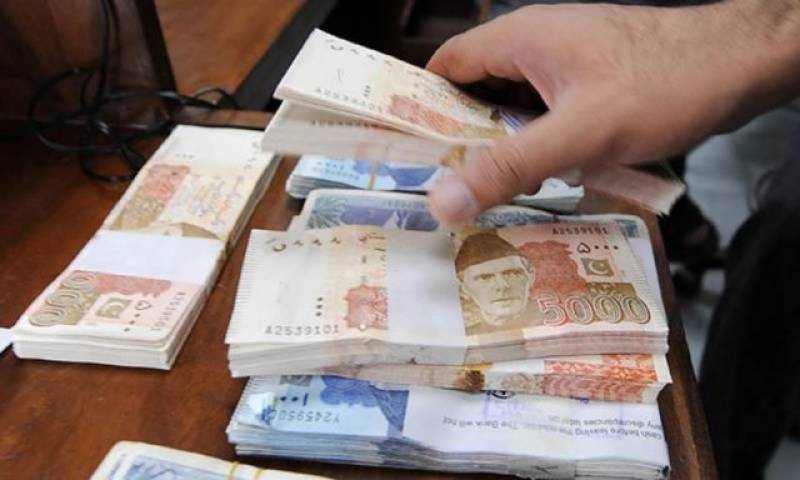Lahore (Web Desk): Our brain is the best filter for received information coming from the environment. But sometimes we receive the information but remain ignorant of the relevant importance.
The currency notes are not only the source to purchase things but also a symbol of the identity of the states.
We use Pakistani currency notes in our daily but do not ever notice the importance of the pictures printed on these.
Here is very useful information about pictures on Pakistani notes issued by the State Bank, you never used to improve your general knowledge.
10-Rupee Note:
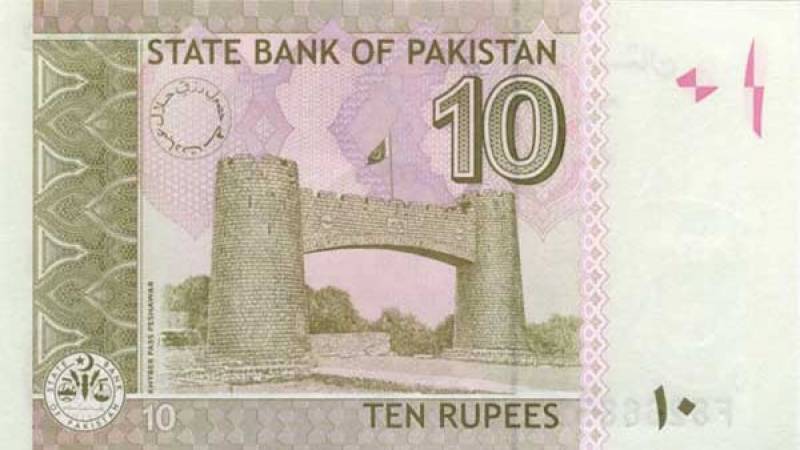
On the back of the note there is a picture of Bab-e-Khyber (Khyber Pass), a mountain pass connecting the Pakistani town of Landi Kotal, near Afghanistan border.
20-Rupee Note:
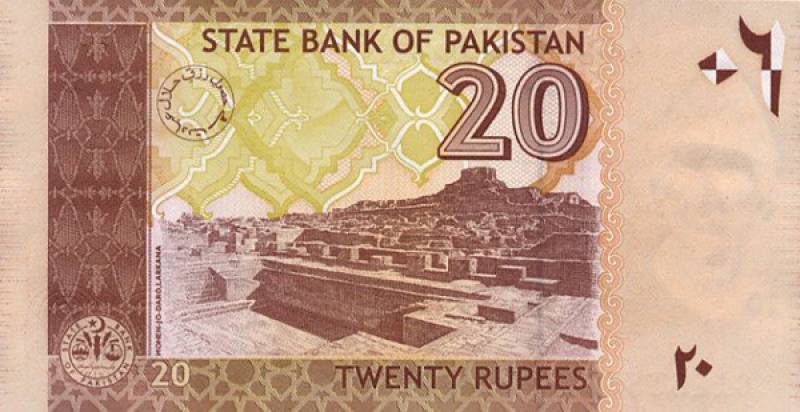
On the back of the note there is a picture of Mohenjo Daro – an achitectrul site of Sindh predicts an old civilization. In 1980, UNESCO declared it World Heritage Site.
50-Rupee Note:
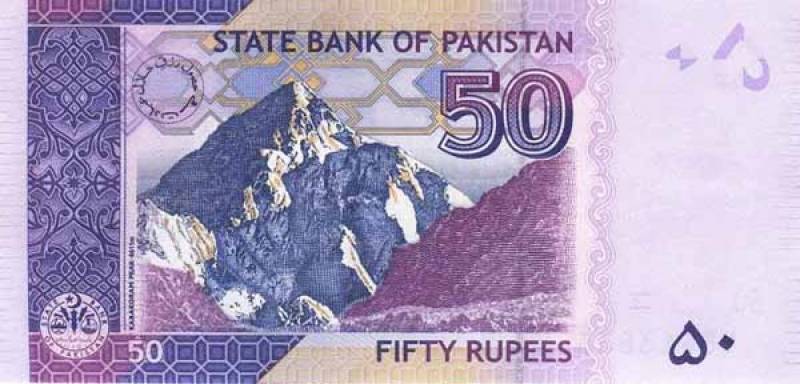
On the back of the note there is a picture of Pakistan Karakoram mountain range - a large mountain range spanning the borders of Pakistan, India, and China, with the northwest extremity of the range extending to Afghanistan and Tajikistan.
100-Rupee Note:
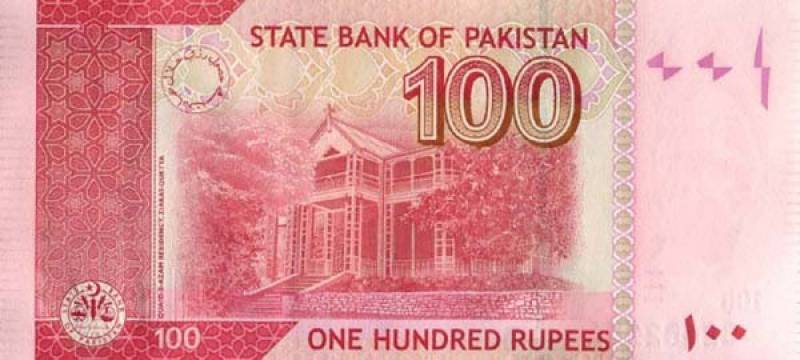
On the back of the note there is a picture of the building the remained the residence of Quaid-e-Azam in 1948 when doctors advised him to reside in due to Quaid’s ailing health.
500-Rupee Note:
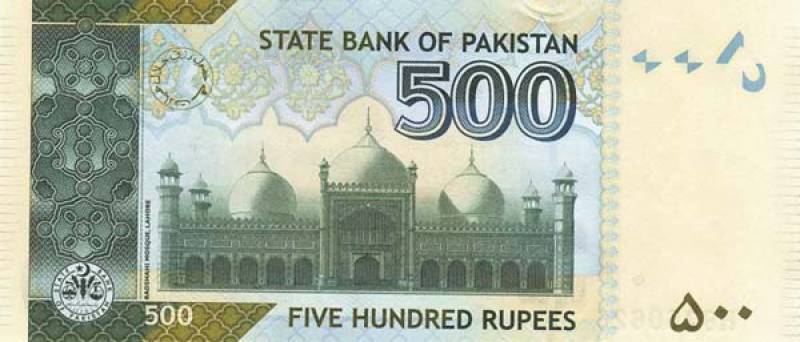
There is the picture of Mughal era Badshahi Mosque on the back of the note. Aurangzeb Alamgir constructed the mosque that is also the cultural symbol of Lahore.
1000-Rupee Note:
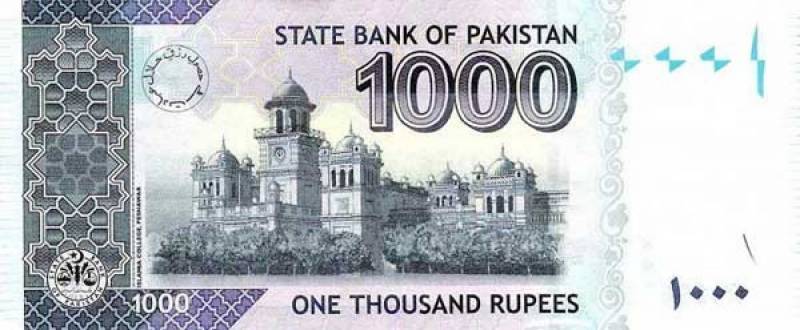
On the back of the note there is a picture of Islamiya College University Peshawar Pakistan. This building has special importance for the struggle of its students during British rule to get separate homeland for the Muslims if India.
5000-Rupee Note:
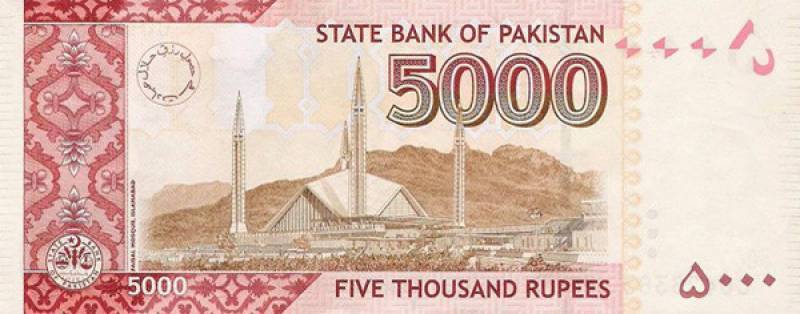
On the back of the 5000-Rupee note there is a picture of Faisal Mosque located on the foothills of Margalla Hills. It was constructed by a Saudi Prince in 1966 when he visited Islamabad.


